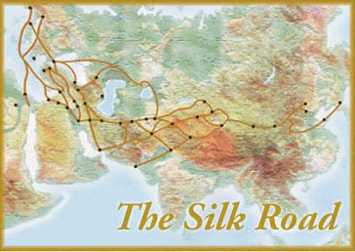After reflecting on the article, Myth and the Construction of Foreign Ethnic Identity in the Early and Medieval China, it is evident that ethnicity was the distinguishing factor among groups of people. The Chinese people specifically were preoccupied with establishing ethnic identities amongst marginal and foreign peoples. Using myths and tales, they mastered the manipulation of ethnic identities. What puzzled me was trying to understand the motives of the Chinese. Why did they want to define other groups of people? What was in it for them? Did they desire this for power, or for the good of people? Answering the questions that bewildered me, I learned that the Chinese had two contradicting motives in the desire for labelling others.
The first purpose of using myths was to incorporate foreign peoples into their culture. This thought struck me because if the Chinese were so protective of their culture, why did they want to share it with others? Accordingly, myths allowed the Chinese to turn others under their influence. By influencing stories and adding mystical, Chinese elements, they made other people relatable to their culture. For example, in the origin story of Chaoxian and Gaojuli, Chinese interaction influenced Korean trade but had no similarity in characteristic. When Chu-Mong took control, a myth of his existence surfaced. The myth stated that his mother was once locked up in a room by the King and got pregnant by the rays of sun. Knowing that the King wanted her child dead, the mother told him to run far away. As Chu-Mong’s escape was set back by a river, the turtles and fish created a bridge allowing him to get across. By adding mythical elements to Chu-Mong’s birth story, it legitimized Chinese expansion within Korea. This assembled a Chinese identity for the Korean people, as they were now under Chinese rule.
The second purpose of using myths is contradictory to this thought. The Chinese also used stories to keep enemies at a distance feeling degraded. The Chinese promoted their identity by deeming foreigners exotic through mythical additions to their stories. In simplest terms, I understand this idea to be the Chinese’s way of scaring other opponents away. They belittled them to feel powerless against their reign. An example of this lies in Chinese accounts of the origin myths of Xiongnu. The first mythical version of the origin story stated the people were descended by wolves. There once were two daughters whom were put onto a platform by their father in order to be sent into heaven because of their grace. When a wolf guard took over at the platform, the younger sister was intrigued by him, became his wife and bared his children. The second myth stated that a boy fell in love with a wolf that eventually bared his ten children. Considering the fact that Chinese viewed wolves as violent, negative animals, this imposed insults to the people of Xiongnu. This act of degrading competition shows the importance of power when constructing ethnic identity. I believe that the Chinese in this medieval era were selfish for boosting their own pride by tearing others down.
Although the Chinese had two opposing purposes for using myths, the fact remains that intentions always remained to better their own people. Regardless of the purpose, the Chinese projected their customs onto others. They were hungry to control every aspect of others identities whether it be destroying their pride or assimilating them under their rule. The purpose of this article was to demonstrate that stories of the past can easily be altered by people for passionate reasons. The mythic stories in this article were used as examples to show how Chinese thought lurked origin stories of the others. The myths are solid pieces of evidence that Chinese were able to influence their opponents. The problems of Chinese influence that I find is how are we to know which myths are authentic or altered by the Chinese. Ultimately, the Chinese have skewed our vision of truth when reading myths of others.

No comments:
Post a Comment